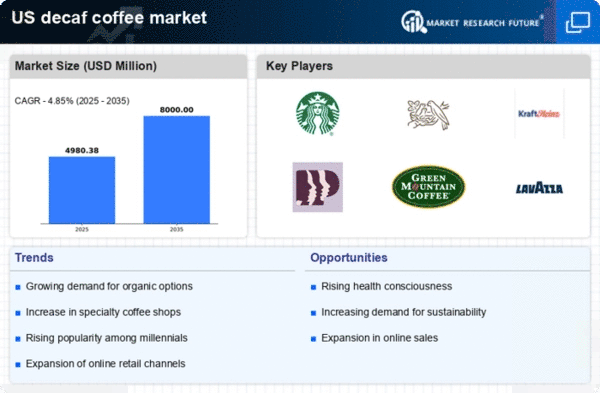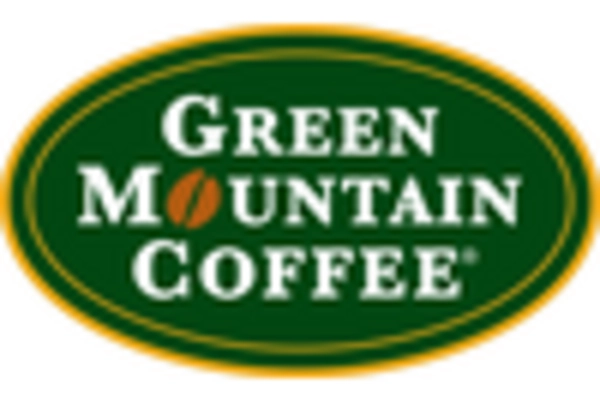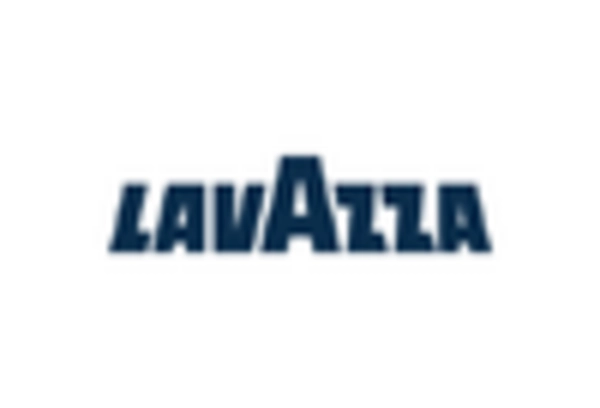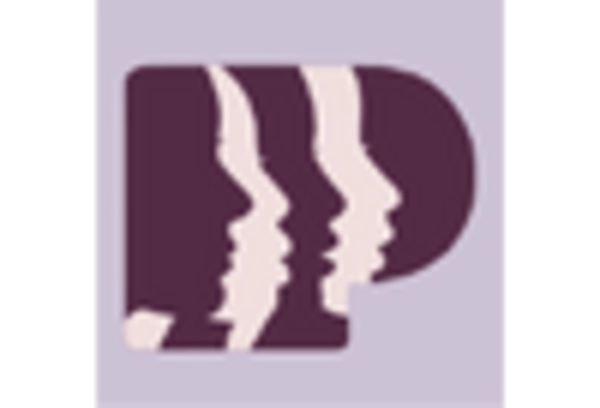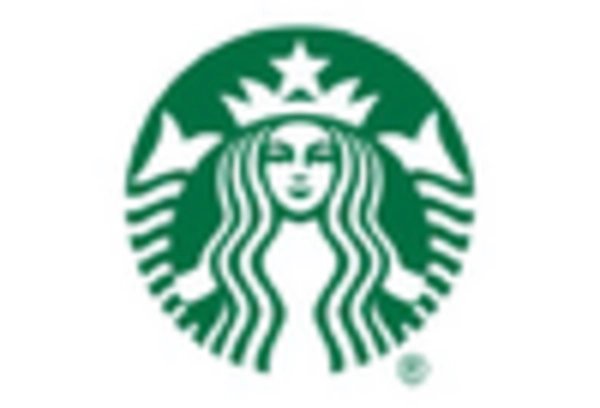Innovative Brewing Technologies
Advancements in brewing technologies are playing a crucial role in shaping the decaf coffee market. New methods of decaffeination and brewing are enhancing the flavor profiles of decaf coffee, making it more appealing to a wider audience. For instance, the introduction of cold brew decaf options has gained traction, with sales in this segment increasing by approximately 15% in recent years. The decaf coffee market is likely to benefit from these innovations, as they not only improve the quality of decaffeinated coffee but also attract consumers who may have previously overlooked decaf options. As technology continues to evolve, the potential for new product offerings in the decaf segment appears promising.
Growing Interest in Home Brewing
The trend of home brewing has gained momentum, influencing the decaf coffee market positively. With more consumers investing in home brewing equipment, there is an increasing demand for high-quality decaf coffee beans. Recent surveys indicate that nearly 40% of coffee enthusiasts in the US prefer brewing their coffee at home, which includes a significant portion opting for decaffeinated varieties. The decaf coffee market is thus poised to capitalize on this trend by providing premium decaf beans and brewing accessories tailored for home use. This shift towards home brewing may lead to a more engaged consumer base, fostering brand loyalty and encouraging experimentation with different decaf products.
Expansion of Specialty Coffee Shops
The proliferation of specialty coffee shops across the US has significantly impacted the decaf coffee market. These establishments often cater to a diverse clientele, including those who prefer decaffeinated beverages. Recent statistics suggest that specialty coffee shops account for over 50% of the coffee market, and many of these venues offer a range of high-quality decaf options. The decaf coffee market is thus benefiting from the trend of consumers seeking unique and premium coffee experiences. As specialty shops continue to expand, they are likely to introduce innovative decaf blends, further enhancing the appeal of decaffeinated coffee among discerning consumers.
Rising Demand for Low-Caffeine Alternatives
The decaf coffee market experiences a notable increase in demand as consumers seek low-caffeine alternatives. This trend is particularly pronounced among individuals who are sensitive to caffeine or those who prefer to limit their intake for health reasons. According to recent data, approximately 30% of coffee drinkers in the US express a preference for decaffeinated options, indicating a substantial market segment. The decaf coffee market is thus positioned to benefit from this growing consumer awareness regarding caffeine consumption. As more people prioritize their health and wellness, the demand for decaf coffee is likely to continue its upward trajectory, potentially leading to increased product innovation and marketing strategies aimed at this demographic.
Increased Availability of Organic Decaf Options
The decaf coffee market is witnessing a surge in the availability of organic decaffeinated coffee products. As consumers become more environmentally conscious, the demand for organic options has risen sharply. Data indicates that organic coffee sales in the US have grown by approximately 20% over the past few years, reflecting a broader trend towards sustainable and health-oriented products. The decaf coffee market is thus adapting to this shift by offering a variety of organic decaf options, which not only cater to health-conscious consumers but also align with ethical sourcing practices. This trend may lead to increased market share for brands that prioritize organic certifications and sustainable farming methods.


